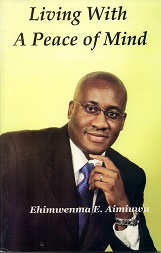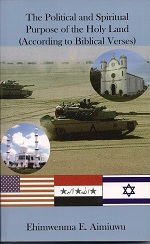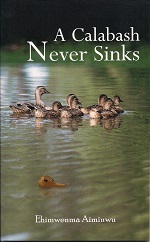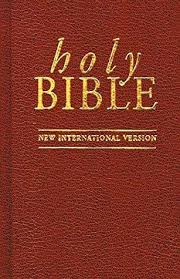When someone reads the Holy Bible, for example, the picture one gets is a ” one continuous story from Genesis to Revelation.” When the trained mind in historical and religious analysis goes through it, he finds strata and combination of stories-not one story line. A reading of Genesis chapters 1 and 2 will show what we are talking about here. The untrained mind sees both chapters just as one continuous whole-the creation of the world with ” man being created last.” But when the student of history subject the same chapters to analysis, then the picture of more than one story comes into view. Genesis Chapter 1 through chapter 2 verse 3 shows the first story of creation with man being created last. Genesis Chapter 2 verse 4 shows man being created first and all other things following behind.
What the old Jewish biblical writers did as they codified the bible, was that they simply tried to mix different stories together, which they may have gathered from different sources. In this case, they were trying to mix up stories from both the NORTHERN KINGDOM and SOUTHERN KINGDOM of Israel together. Their main purposes was to tell the world, how God ( Yahweh) dealt with the Israelites. They never knew that a time would come, when their writings would be subjected to scrutiny, as we now do.
When Clapperton visited Sultan Bello of Sokoto ( the son of Uthman Dan Fodio ) he told him of the Arabic ancestory of the Yorubas ( Oyo Yorubas) Clapperton wrote it down in his note book. Rev Samuel Johnson retold this story with two layers of time-scale in his HISTORY OF THE YORUBAS. He tried to reconcile the ” Ife version of the history of the Yorubas with that of the Oyo version.” He created an unwieldy pan-yoruba history which has a very strong Oyo-centric perspective. That was how the Hausa version of the yoruba history got into the main-streamed yoruba history which has been fed to generations of Nigerians. It was in that book the ancestory of the Edos was first mentioned. Rev. Olumide Lucas merely built on the foundations laid by Rev, Samuel Johnson. The Mecca or Egypt version is not the ” YOURBA TRADITION.” It is a later imposition popularised by the 20th century nationalistic and pan-yoruba feelings.
Talbot, the authority cited by Chief Egharevba had access to Clapperton’s notes. Chief Egharevba himself had access to both Talbot and Rev. Samuel Johnson who wrote with the UNITY OF THE YORUBAS in mind and a link to Mecca and Egypt. Chief Egharevba wrote with the UNITY OF EDOS in mind. What Rev Lucas was to Rev Johnson, so too was Chief Oronsaye to Chief Egharevba. All these men were pioneers in the field they had little or no training for and they did their best. The last twenty or more years have seen Yoruba historical academicians, moving away from the Mecca, Medina, Egypt and Nubian stories. We are not surprised that some Edo writers are still stuck in this Egypt/Mecca/Medina/Nubia ” MUD ” of history.
It might be neccessary for some of us to read the following on the history of the Yoruba and Edo origins:
–Akinjogbin and Ayandele: ” Yorubaland before 1800 ” in the Groundwork of Nigerian History, edited by Obaro Ikime.
–Ade Obayemi: Yoruba, Edo and the etc : History of West Africa ( Vol.1 ) edited by J.F. Ade Ajayi and Michael Crowther
–Thurstan Shaw: ” Nigeria: Its Archaeology and Early History ( Thames and Hudson ,London).
—Graham Connah: The Archaeology of Benin. There are other books out there
Ademola Iyi Eweka.








